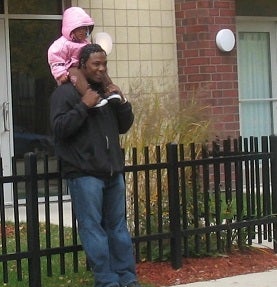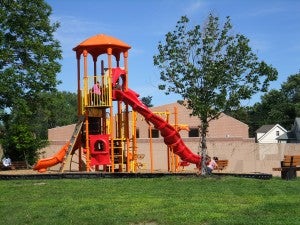Dolly Parton's Imagination Library
Recent media has cited research by our center on Dolly Parton's Imagination Library (i.e., "Dolly Parton's Imagination Library helps ready children for Kindergarten, according to new study" (WCPN Ideastream 1/20/22, Rachel Rood); "Dolly Parton’s Imagination Library leads to higher kindergarten readiness in Cleveland, report finds" (Cleveland.com 1/24/22, Alexis Oatman)). These headlines serve to overstate the nature of the research conducted, attributing differences observed in kindergarten readiness to the IL program. We offer the following clarification of the work:
Dolly Parton’s Imagination Library (DPIL) is one element in the early childhood programming ecosystem in Cuyahoga County aimed at getting children ready for kindergarten. The Center on Poverty and Community Development conducted a descriptive analysis and found that a greater percentage of children who participated in DPIL program were assessed as kindergarten-ready compared to students who did not participate in DPIL. Although a promising trend, it is impossible to infer causation from this analysis. Enrollment and duration of enrollment in DPIL is possibly associated with several other currently uncontrolled or unknown factors that are also positively associated with performance on the Kindergarten Readiness Assessment (KRA) - such as mother’s educational attainment, participation in other aspects of the early childhood programming ecosystem, family engagement etc…. More rigorous statistical analysis is underway. Until then, any differences observed cannot be attributed to DPIL as a program effect.
Poverty affects children at higher rates than adults and has greater negative consequences that can last for a lifetime. Because of this, much of our work revolves around efforts to reduce child poverty and improve outcomes for children in Ohio. The Poverty Center provides research and evaluation services to government and non-profit agencies who use it to shape programs and policies to best address these concerns.
These projects are supported by our CHILD (ChildHood Integrated Longitudinal Data) System, which links administrative data on over 520,000 children. The data come from over a dozen state and local sources, beginning in 1992 and they are continually updated.
Invest in Children
The Poverty Center has partnered with Cuyahoga County’s Invest in Children initiative (IIC) to improve child and family outcomes in the county. Invest in Children is a community-wide, public/private partnership administered by the Cuyahoga County Office of Early Childhood to help increase the development, funding, visibility and impact of early childhood services in Cuyahoga County. Each of Invest in Children’s goals is pursued through a number of service strategies for children, from prenatal to the start of kindergarten. These strategies focus on preparing children to enter school ready to learn, and in good mental and physical health. In the coming year, the Poverty Center will be evaluating the county’s expanded Universal Pre-Kindergarten program.
Recent Research Results based on work with the IIC
2014 Data Briefs on child well-being in Cuyahoga County
Early Childhood Education
Pre4Cle Quality Pre-K programs have been shown to increase school readiness and school performance through third grade. Pre4Cle is a comprehensive strategy to ensure all 3- and 4-year-old children in the City of Cleveland have access to high-quality preschool. The Poverty Center works with Pre4Cle, monitoring the high-quality preschool supply throughout the City.
Special Needs Childcare (SNCC program coordinated by Starting Point Inc.): Children with special physical and behavioral issues often do not get their needs adequately met in public early education environments, often resulting in expulsion. The Poverty Center has been working with Cuyahoga County’s Invest in Children Initiative to evaluate whether specialized assistance visits improve schools’ abilities to meet these special needs, keeping these kids in school.
Youth and Foster Care
Download the Cleveland Policy Research Brief Effects of Foster Care and Juvenile Justice Involvement on Early Adult Outcomes: A Study of Cleveland’s Youth.
This research brief was written by C. Coulton, D. Crampton, Y. Cho, and S.-J. Kim. This study was funded by the Annie E. Casey Foundation, as part of the National Neighborhood Indicators Partnership’s Integrated Data Systems (IDS) demonstration project.
Predicting Early Childhood Success
Ohio Education offices used CHILD data to examine how early childhood experiences of Cleveland kindergarteners predict kindergarten readiness scores and third grade reading proficiency. The analysis confirmed that factors such as low maternal education, low income, low birth weight, and disability were negative factors on proficiency scores. The analysis also found that home visit services and access to high quality preschool exerted strong positive influence on readiness and reading proficiency.
Ohio Education Research Center (OERC) Report: Press/povertycenter/media/966 Release
OERC Full Report: Investigating the Pathway to Proficiency from Birth Through 3rd Grade
Neighborhood Effects on Children
Urban children often enter kindergarten already well behind in their educational progress, presenting a major challenge for public education systems. While it is generally acknowledged that the environment in which children spend their early years is crucial, little is known specifically about how housing conditions both in children’s own homes and the immediately surrounding areas, factor into the problem of school readiness and early learning. Drawing on two, existing, Integrated Data Systems (IDS), this longitudinal, population-based study examines the influence of housing and neighborhood conditions on early childhood experiences, school readiness and early literacy for all children entering kindergarten over a three year period in Cleveland, Ohio.
Read the final report here: Leveraging Integrated Data Systems to Examine the Effect of Housing and Neighborhood Conditions on Kindergarten Readiness
This report was written by C. Coulton, F. Richter, S.-J. Kim, R. Fischer, and Y. Cho. This research was supported by the John D. and Catherine T. MacArthur Foundation as part of the How Housing Matters program.
MOMSFIRST Project
From 2014-2019, the Poverty Center will evaluate MomsFirst, a case management and home visiting program operated by the City of Cleveland’s Department of Public Health to reduce racial disparities in infant mortality in Cleveland. The program partners with neighborhood organizations to conduct home visits to high risk women to make sure they get the health and social service delivery they need, as well as education on healthy pregnancy and baby care. The evaluation will look at whether and how much the program reduces the incidence of low birth weight births, preterm births, and infant mortality and improves maternal health.




